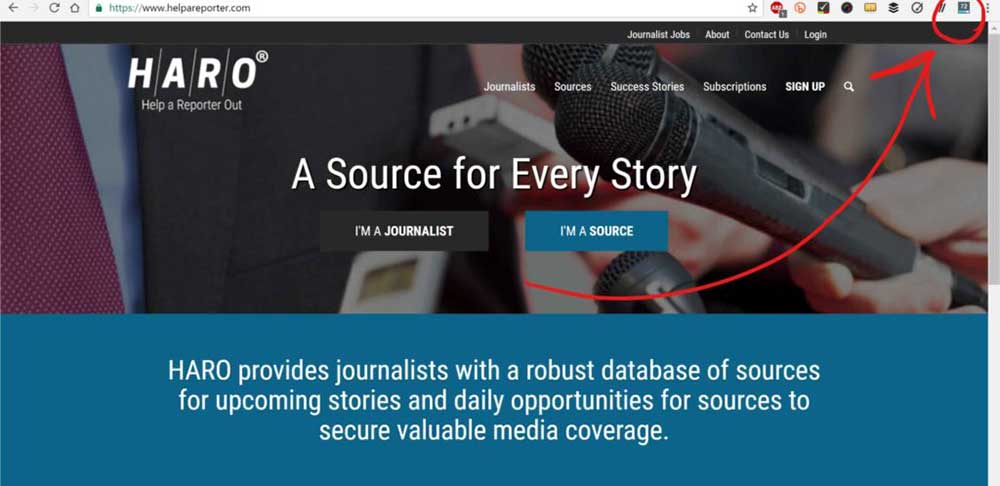Creating a blog or website is only a small piece of your online marketing strategy. The more difficult and time-consuming portion is improving your search engine optimization.
Building a solid SEO strategy is crucial to boosting your rankings in Google and bringing in organic traffic.
There are a number of tools I use in my SEO efforts, but one of my favorites is Help a Reporter Out. (or HARO, for short) It’s one of the most effective ways to build high quality back links to your website.
Before I get into why HARO is so useful, let’s look at why high quality back links are so important for SEO.

The value of high quality back links
Getting high quality back links to your website or blog should be one of the cornerstones of your SEO strategy. Links from high authority and trusted websites tells Google that you are also a trusted leader in your niche.
Domain Authority, or DA, is ranked on a scale of 1 to 100. The higher the number, the more authoritative that website is.
There are a number of tools that will tell you what your domain’s authority is. I use Moz’s Open Site Explorer. More specifically, I use their awesome MozBar chrome extension that shows me the DA of every site I visit.
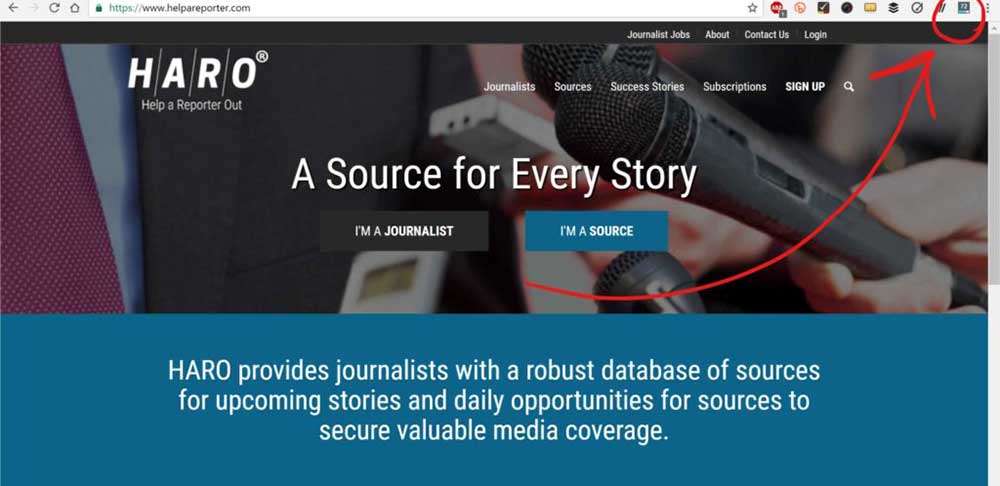
Having the DA conveniently located in the corner of my web browser helps me weed out the noobs from the true thought leaders.
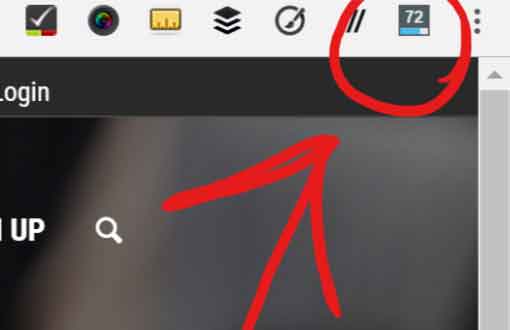
HARO has a DA of 72, which is very good.
Generally speaking, you want to get links back from websites that have a minimum DA of 30+. Anything less than that isn’t worth your time. This is, of course, from an SEO perspective. There can still be value in getting links on blogs with a smaller DA if it helps you reach your target audience.
How Help a Reporter Out helps you build domain authority
Now that we’ve established the value of quality back links, let’s look at how HARO helps you get them.
HARO is a service that connects reporters with quality sources. When a journalist, writer, or blogger is looking for credible sources for their articles, podcasts, or videos, they use HARO to find them.
They will put together a brief summary of what they’re looking for, and it will be emailed out by HARO in a daily summary.
If you feel you could be a valuable source for their content, you can reply to them with your submission via these emails. If they select you, they will use your excerpt, quote, or interview in their content and credit you with a link back to your website or blog.
Simple as that.
Oh, and by the way, this is all completely free. (HARO has subscription packages, but you don’t need them)
How to get started with Help a Reporter Out
After signing up on HARO’s website, you will be asked to fill-in the usual contact info. Along with that, you will be asked to choose which daily email summaries you’d like to receive.
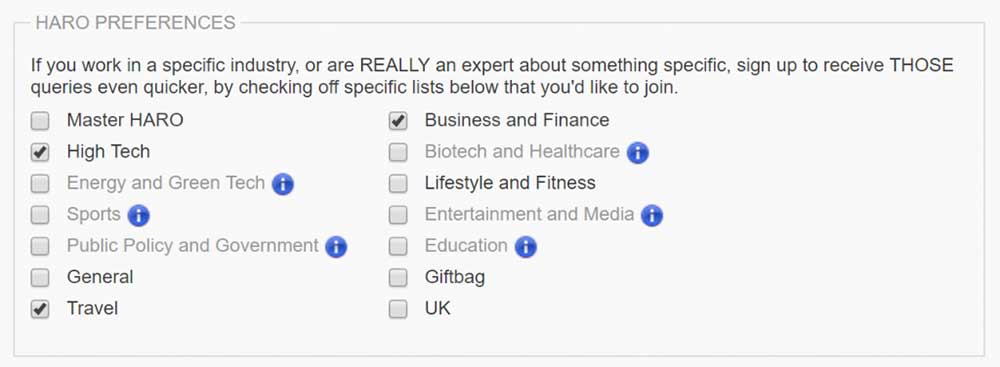
Choose the ones you have the most knowledge of and are relevant to your interests.
After completing your forms, you will start to receive your daily email summaries. These actually come 3 times a day with Morning, Afternoon and Evening Editions.

Here’s what a HARO email summary looks like. This is the Afternoon Edition of the Business and Finance Enquiries.
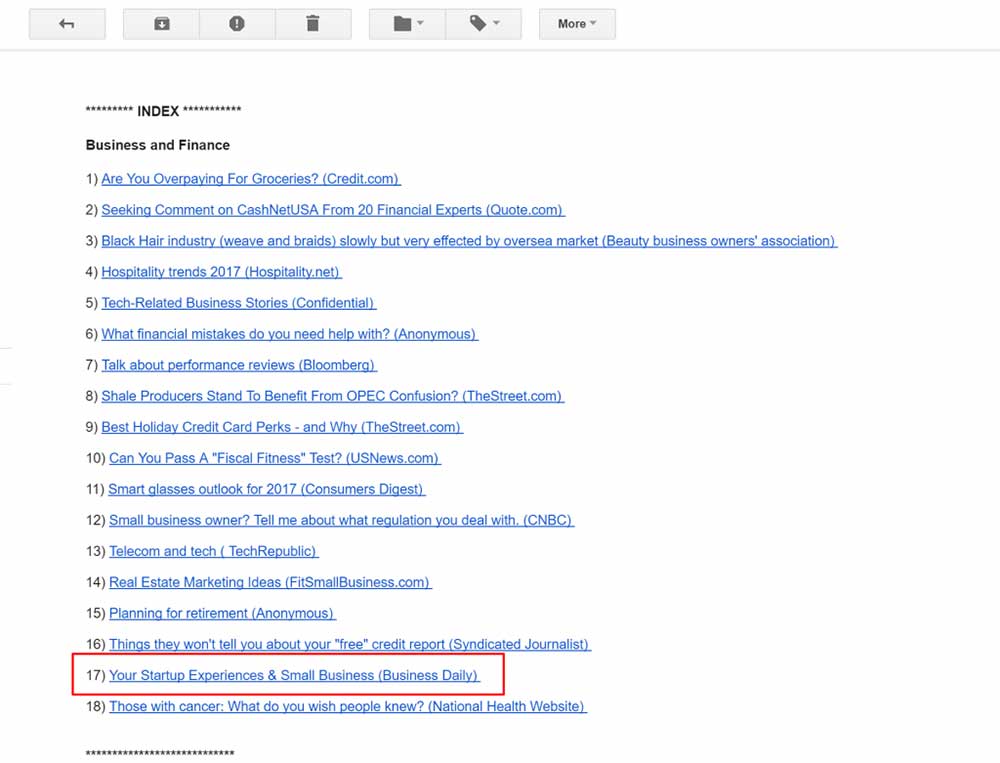
After searching through the 18 current requests, I’ve spotted one that could fit my expertise. I have experience as a small business owner and working for startups. Let’s see what this reporter is looking for.
Clicking on the link takes you further down the email to where that request is located.
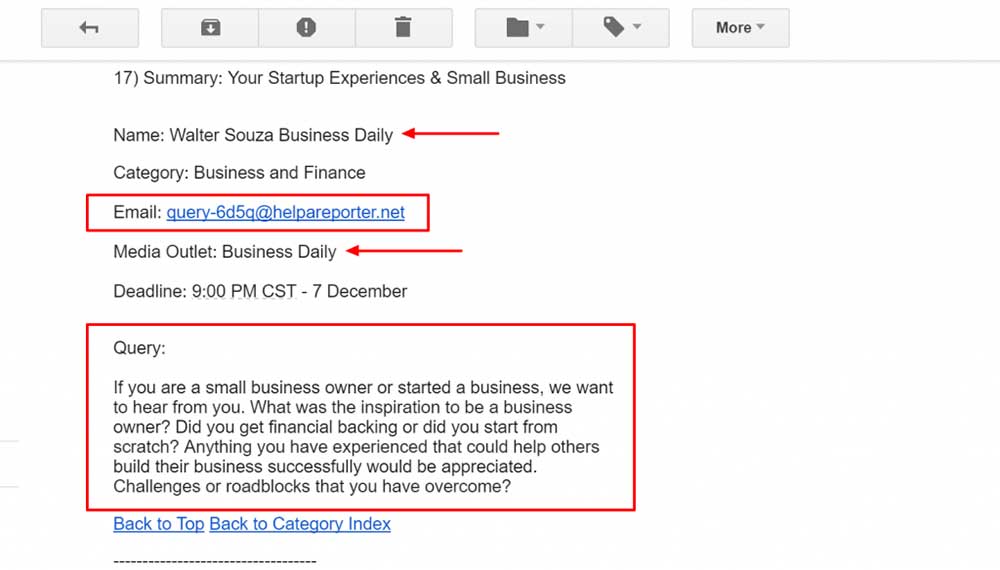
Awesome! I could definitely answer this reporters query. Now, the other thing you always want to check is which media outlet the request is for.
Again, we are searching for publishers and websites with high Domain Authority that will give us high quality back links.
A quick Google search tells me that Business Daily is indeed an authoritative website.
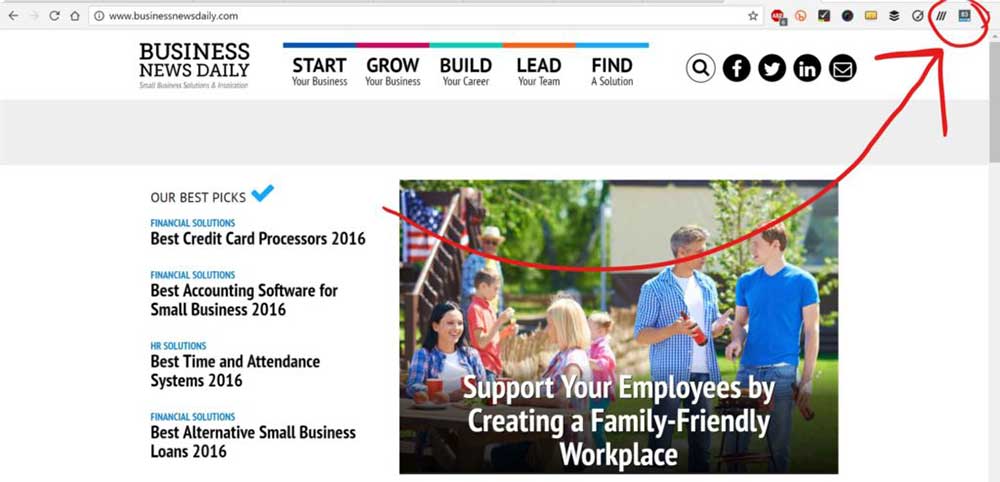
With a DA of 83, a link from these guys would be incredibly valuable.
Now it’s time to craft our reply.
Crafting your HARO story
If you want to be chosen by a reporter for an article, here are a few things to keep in mind:
- Be genuine and honest. These are journalists we’re talking about. They can smell BS from a mile away.
- Add value. Picture the reporter’s objective for the audience they’re writing for. Does your story make their job easier? Does it fit with the angle they are going for?
- Be interesting. Use personal stories, examples and anecdotes.
- Follow instructions. Many reporters will get very specific with what they’re looking for. Don’t deviate outside their requirements. They receive many responses and won’t have time for people who don’t listen.
If a reporter selects you, they will respond to your email with further questions and instructions. They will almost never let you know that you haven’t been chosen.
Once their article goes live, they will send you a link to it and possibly encourage you to share it with your audience. (which you will gladly do)
And just like that, you’ve got yourself a beauty of a back link to your website!
It’s hard to say what your success rate will be, as there are many varying factors like audience size, competition, deadlines, etc.
But if you follow these guidelines and reply to requests regularly, you’re guaranteed to nab at least a few.
I’ve been featured in many different articles. From social media to web design to entrepreneurship to personal finance.
I have a nice set of SEO tools at my disposal, but Help a Reporter Out is still one of the easiest and lesser known ways to gain high quality back links and grow your Domain Authority.

